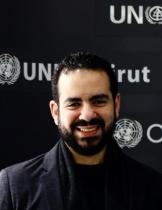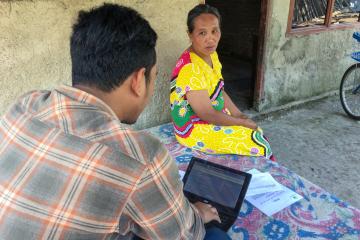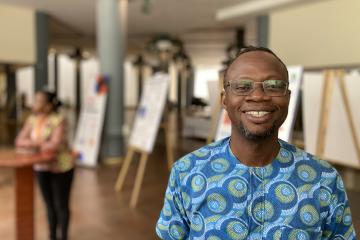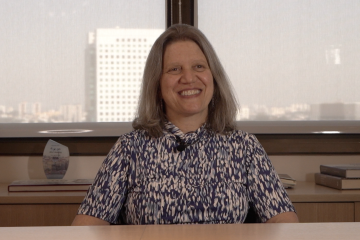
20 for 20: Life from Water’s evidence-based journey in Egypt
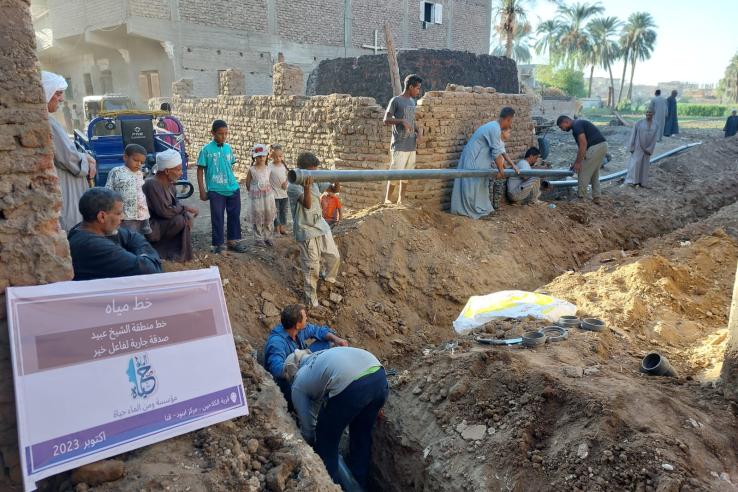
This is the sixth post of J-PAL’s 20 for 20: Partner Voices blog series, where we showcase stories of results and impact with our partners to celebrate our twentieth anniversary. Read on to learn more about how J-PAL Middle East and North Africa’s (MENA) partnership with Life from Water Foundation helped bridge gaps to address persistent challenges in water interventions.
A persistent dilemma in development
In the world of economic development, particularly in the water sector, one of the biggest challenges facing organizations remains constant: how to implement impactful projects in different rural communities and different environments to ensure sustainable, community-driven solutions. Traditional methods are usually well-intentioned but may lead to impractical endeavors, leaving communities underserved and resources misallocated. Even when projects appear effective at the beginning, many organizations can encounter a sustainability crisis afterwards, regardless of their size, experience, or available resources.
Life from Water's technical pursuit toward impact and innovation
Amidst this challenge, In 2014, I founded the Life from Water foundation formally after being active for three years as an initiative with a vision of technical excellence and innovation at its core. Driven by a deep commitment to community empowerment, we embarked on a mission to collaborate closely with local communities, ensuring access to sustainable and cost-efficient water interventions in rural areas of Egypt, thereby providing clean water to those in need. Guided by our core values of transparency and "ihsan," the Arabic word for “excellence,” our dedicated technical and operational teams set out to create tangible and lasting change. These values push us toward a continuous pursuit of improvement.
A paradigm shift in development strategies
As we dove deeper into the complexities of water interventions, we recognized the limitations of traditional methods. After implementing projects across different communities in Egypt, Uganda, Kenya, and Tanzania, we witnessed the necessity to learn more proven approaches. Such learning comes at the expense of our limited resources but is crucial to ensuring that these resources are best allocated to serve our ultimate goal of sustainable impact. To that end, we proactively engaged in partnerships with national and international organizations to deepen our knowledge in different contexts, learning from their expertise—and mistakes—and seeking innovative solutions that could bridge the gap between intention and impact. But that was not enough.
A transformative partnership with J-PAL MENA
Our pivotal moment arrived from our collaboration with J-PAL MENA, made possible through our project funded by the Sawiris Foundation for Social Development. Together, we focused on a specific challenge: increasing the uptake of 27 of our community-based water treatment units in rural Egypt in areas where water is not safe for drinking. Here, the concept of impact evaluations and randomized controlled trials (RCTs) became our guiding light. Instead of relying on traditional trial and error or merely our experience and assumptions, we embraced rigorous scientific methodologies to discern precisely which interventions were effective in specific contexts and how they affected the willingness to pay for water in rural communities.
This partnership reshaped our understanding of our core value of excellence. We realized that true excellence lies in the objective application of impact evaluations, ensuring our interventions were not only well-intentioned but also scientifically validated. Our learning journey with J-PAL MENA humbled us, embedding the impact evaluation mentality in our team, especially the field team, which used to rely on hands-on experience without questioning its impact. However, after receiving RCT training and learning about its objectives from J-PAL MENA, questioning impact became common in their day-to-day work—and became part of the culture at the Life from Water Foundation.
Continued commitment: Scaling impact through collaboration
In the face of climate change and evolving community dynamics, more innovations are necessary, and the associated carbon footprint of such innovations versus the traditional solutions becomes crucial to tackle. Our focus sharpened on impact evaluations to actively address these challenges alongside the rising water scarcity in Egypt. But this challenge is not only on Life from Water to address; it's important to scale such a mindset to the water development sector in Egypt. Now more than ever, collaboration is key to accelerate these efforts. By collaborating with J-PAL MENA, we continue to leverage knowledge, expertise, and resources to ensure that our collective efforts translate into sustainable solutions. This can accelerate addressing various challenges, ranging from improving infrastructure to treating drinking and waste water.
Transforming communities through evidence
Our journey reflects the potential and the power of evidence-based solutions in Egypt's water sector. Through our partnership with J-PAL MENA, we are not planning to just implement more water projects: we will work hand in hand with local communities and other stakeholders to influence policy and ensure these kinds of projects are rooted in evidence, compassion, and a relentless pursuit of excellence. Together, we aren't merely bridging gaps; we're paving a path toward a future where every drop of water signifies hope, resilience, and lasting change.
